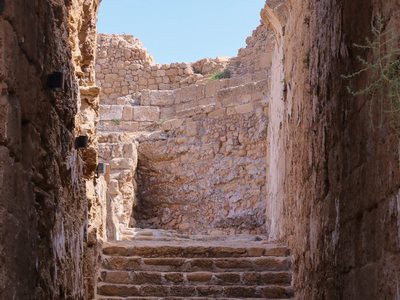Jesus-Our High Priest

It is widely known that Jesus is the Savior of mankind. Likewise, many individuals recognize that Jesus is “…the blessed and only Potentate, the King of kings, and Lord of lords” (1 Tim. 6:15). However, not as many may know that Jesus is also the High Priest under the New Covenant. In order for us to appreciate fully what that means, we would be wise to do a study of the role of the High Priest under the Old Covenant.
The very first High Priest under the Old Covenant was Aaron, the brother of Moses and Miriam. It would be that every other High Priest under the Old Covenant would come through the line of Aaron (Exo. 29:9; Num. 18:7). That means that every High Priest back then was also a Levite, due to the fact that Aaron was part of that tribe (Exo. 6:16-20). That is important because Jesus could not have been a High Priest under the Old Law. The reason is that Jesus was of the tribe of Judah (Heb. 7:14). Instead, Jesus was “Called of God an high priest after the order of Melchisedec” (Heb. 5:10). As the Hebrews writer put it, “If therefore perfection were by the Levitical priesthood, (for under it the people received the law,) what further need was there that another priest should rise after the order of Melchisedec, and not be called after the order of Aaron? For the priesthood being changed, there is made of necessity a change also of the law” (Heb. 7:11-12). In other words, for Jesus to become the High Priest, there had to be a new law/new covenant (cf. Heb. 8:9-13).
The responsibility of the Levitical High Priest was a large one. He filled the part of a mediator between Israel and God. Interestingly, Jesus is the mediator between God and men today (1 Tim. 2:5; Heb. 9:15). It was the job of the High Priest, and only the High Priest, to make atonement for the people of Israel. This was done once a year on the Day of Atonement. The High Priest was allowed to offer a sacrifice to God each year for the sins that Israel committed. “For on that day shall the priest make an atonement for you, to cleanse you, that ye may be clean from all your sins before the LORD” (Lev. 16:30). Not only did he offer on behalf of the people, but the High Priest back then had to offer for himself as well. It is recorded, “And Aaron shall bring the bullock of the sin offering, which is for himself, and shall make an atonement for himself, and for his house, and shall kill the bullock of the sin offering which is for himself” (Lev. 16:11). Even after all of that was done, the sins of Israel were only forgiven in promise. The inspired author wrote, “But in those sacrifices there is a remembrance again made of sins every year. For it is not possible that the blood of bulls and of goats should take away sins” (Heb. 10:3-4). If Jesus had not shed His blood as an offering for sin, then none of Israel would have been saved.
With all of that being written, consider the difference between Jesus and the High Priests of old. “For such an high priest became us, who is holy, harmless, undefiled, separate from sinners, and made higher than the heavens; Who needeth not daily, as those high priests, to offer up sacrifice, first for his own sins, and then for the people’s: for this he did once, when he offered up himself” (Heb. 7:26-27). Jesus did not need to offer for Himself because He was sinless. “Seeing then that we have a great high priest, that is passed into the heavens, Jesus the Son of God, let us hold fast our profession. For we have not an high priest which cannot be touched with the feeling of our infirmities; but was in all points tempted like as we are, yet without sin” (Heb. 4:14-15). Also, Jesus did not have to offer Himself multiple times. “Nor yet that he should offer himself often, as the high priest entereth into the holy place every year with blood of others; For then must he often have suffered since the foundation of the world: but now once in the end of the world hath he appeared to put away sin by the sacrifice of himself…So Christ was once offered to bear the sins of many; and unto them that look for him shall he appear the second time without sin unto salvation” (Heb. 9:25-28).
Because Jesus is our High Priest today, we are certainly blessed. We are taught, “And having an high priest over the house of God; Let us draw near with a true heart in full assurance of faith, having our hearts sprinkled from an evil conscience, and our bodies washed with pure water” (Heb. 10:21-22). Also, “Let us therefore come boldly unto the throne of grace, that we may obtain mercy, and find grace to help in time of need” (Heb. 4:16).
~ Corey Barnette


